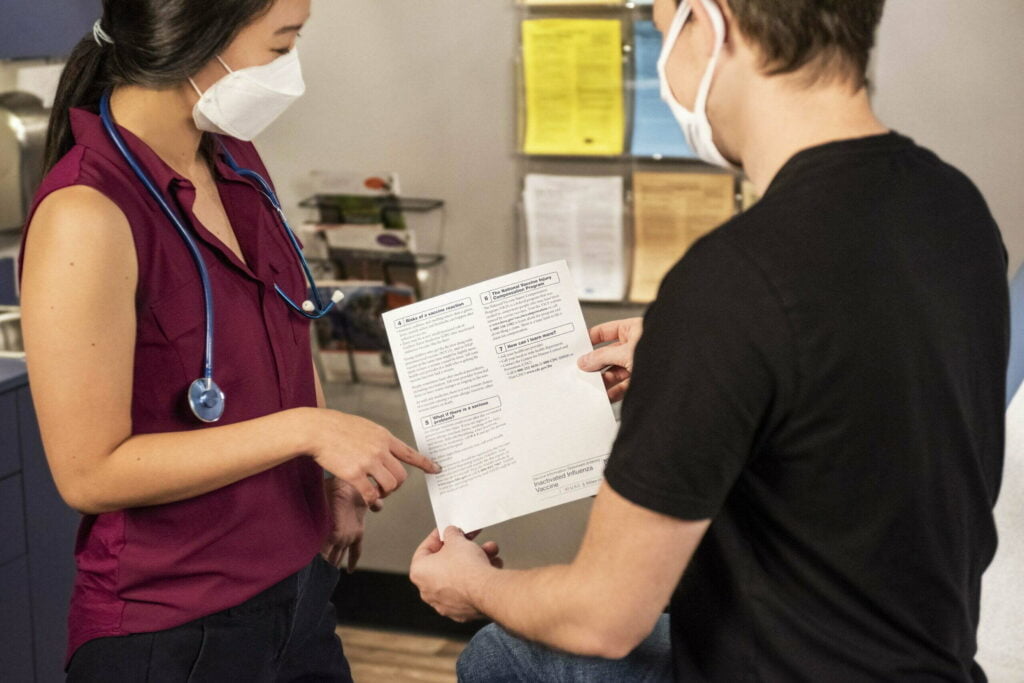

What is an Assistive Technology Professional: Everything You Need to Know About the Hero Behind the Scenes

As Seen On
In an era where technology is morphing the physical being from a luxury to an absolute necessity and where the Internet of Things (IoT) has become the new black, some unsung heroes are reshaping the world – but not in a fancy Silicon Valley way. Here, we’re talking about a lesser-known breed: the assistive technology professional.

Let’s Break Down this Tongue Twister: What is an Assistive Technology Professional?
In the constellation of high-tech jobs, the assistive technology professional twinkles brightly yet subtly. This heroic tech whisperer makes possible what seems impossible for individuals with disabilities. They weave magic, translating challenges into accessible solutions through technology. But just as Batman has his utility belt, they too have their tools – the wonders of engineering and assistive technology together.
Did I forget to mention what assistive technology is? Here goes a quick rundown: Assistive technology, often referred to as AT, consists of devices or software programs that improve the functional capabilities of individuals with disabilities. From screen readers for the visually impaired to voice recognition for those who can’t type, the scope of AT is wide, encompassing everyone who needs that extra hand.
A Day in the Life of an Assistive Technology Professional: Saving the World One Device at a Time
So, what does a day look like for an assistive technology professional? Imagine walking into an office, and instead of paperwork, your day is filled with cutting-edge technology, customised devices and boundless creativity. These assistive technologies professionals are continually learning, adapting, and growing, keeping pace with the dynamic tech world while remaining sensitive to the unique needs of those they serve.
They often say that those who can’t do, teach. Well, these professionals beg to differ. Not only do they understand the nuts and bolts of their craft, but they also excel at training others to do the same. I mean, isn’t that something?
The Undeniable Impact of Assistive Technology Professionals
Numbers speak louder than words providing assistive technology, so let’s hear what they say. According to a World Health Organization (WHO) report, around 2.5 billion people need one or more assistive products. Still, only 1 in 10 people in need have access to assistive technology due to high costs and a lack of awareness, availability, trained personnel, policy, and financing.
- Over 12 million people in the United States alone use assistive technology, according to the National Institute on Disability, Independent Living, and Rehabilitation Research.
- Research shows that 57% of working-age adults who use assistive technology say they wouldn’t be employed without it.
- A National Center for Education Statistics survey found that 94% of students with disabilities use assistive technology.
Those are some head-turning statistics, right? These numbers offer a stark reminder of assistive technology professionals and consumers’ critical role in our society.
Building Bridges, Not Walls: The Human Touch of an Assistive Technology Professional
In a world that’s overly fixated on building walls (we won’t mention names), these professionals are committed to building bridges of accessibility and inclusivity. They work towards creating a world where ‘disability’ is not synonymous with ‘inability.’ And isn’t that what we need more of?
Einstein once said, “It has become appallingly obvious that our technology has exceeded our humanity.” But in the case of assistive technology professionals, humanity and assistive technology society are intertwined, each amplifying the other’s strength.
Imagine a World Without Assistive Technology Professionals
Imagine a world without ramps for wheelchairs or software for the visually impaired. Sounds like a horror movie, doesn’t it? It does, and that’s precisely the kind of dystopia these professionals are combating every day. They are behind the scenes, often unnoticed, crafting a narrative of hope, resilience, mobility, and accessibility.
So, Are You Cut Out To Be An Assistive Technology Professional?
Are you intrigued by the mix of technology, empathy, and problem-solving? Maybe you’re the next superhero waiting in the wings! It’s not a walk in the park, mind you. This job requires dedication, perseverance, and a passion for making a difference. But hey, who said changing the world was easy?
“Change is the end result of all true learning.” – Leo Buscaglia
So, how ready are you to embrace this change? To plunge headfirst into this extraordinary blend of tech and humanity? Let’s see.
Essential Skills for an Assistive Technology Professional
- Technical Know-How: You need to know your stuff. You’re not just playing around with gadgets but creating meaningful solutions.
- Creativity: Every individual is unique, and so are their needs. The ability to think outside the box is a must.
- Empathy: You’re dealing with people, remember? Being able to understand and share their feelings goes a long way.
- Patience: Not every solution will be a hit. You need the patience to keep trying until you find what works.
- Communication: You’re not just creating solutions but also explaining them to the user. Clear and effective communication is key.
Frequently Asked Questions:
What qualifications do you need to become an assistive technology professional?
Most professionals in the field hold a certification or a degree in a related field such as occupational therapy, special education, or engineering. Additionally, certifications like the RESNA Assistive Technology Professional (ATP) certification can enhance credibility.
What skills are required to be an assistive technology professional?
Technical knowledge, expertise, creativity, empathy, patience, and communication are key skills for an assistive technology professional.
Why are assistive technology professionals important?
Assistive technology companies and professionals play a critical role in promoting inclusivity and accessibility for individuals with disabilities. They help to bridge the gap between needs and solutions, enabling people to live and work more independently.
To Wrap Up: Assistive Technology Professionals – Unsung Heroes of the Tech World
The assistive technology professional might seem like a minor thread in the grand tapestry of technology. Yet, this very thread holds together the intricate patterns of inclusivity, accessibility, and empathy. These professionals are, in essence, redefining what it means to be a tech hero – no flashy cape required.
So, the next time you hear about the latest AI innovation or ground-breaking tech startup, spare a thought for these behind-the-scenes heroes – the assistive technology professionals. They may not be making headlines, but they’re certainly making a difference.
Konger
Up until working with Casey, we had only had poor to mediocre experiences outsourcing work to agencies. Casey & the team at CJ&CO are the exception to the rule.
Communication was beyond great, his understanding of our vision was phenomenal, and instead of needing babysitting like the other agencies we worked with, he was not only completely dependable but also gave us sound suggestions on how to get better results, at the risk of us not needing him for the initial job we requested (absolute gem).
This has truly been the first time we worked with someone outside of our business that quickly grasped our vision, and that I could completely forget about and would still deliver above expectations.
I honestly can't wait to work in many more projects together!
Disclaimer
*The information this blog provides is for general informational purposes only and is not intended as financial or professional advice. The information may not reflect current developments and may be changed or updated without notice. Any opinions expressed on this blog are the author’s own and do not necessarily reflect the views of the author’s employer or any other organization. You should not act or rely on any information contained in this blog without first seeking the advice of a professional. No representation or warranty, express or implied, is made as to the accuracy or completeness of the information contained in this blog. The author and affiliated parties assume no liability for any errors or omissions.

